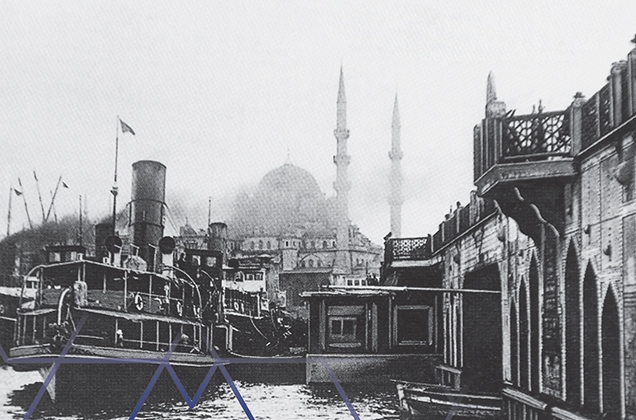26/04/2018
IPC becomes one of Turkey's most influential and fastest-growing think tanks
Sabancı University Istanbul Policy Center (IPC) revealed its 2016-17 Activity Report to the public. Discussing the report on the summary of programs, projects, events and publications in the institution's three research areas, IPC Director Fuat Keyman said that IPC had become one of the most influential, prestigious and fast-growing think tanks of Turkey in the recent years.

Sabancı University Istanbul Policy Center (IPC) published its 2016-17 Activity Report. The report summarized programs, projects, events and publications in the institution's three research areas.
Discussing the 2016-17 Activity Report, IPC Director Fuat Keyman said that IPC had become one of the most influential, prestigious and fast-growing think tanks of Turkey in the recent years. Professor Keyman said that 2016 and 2017 were difficult and important years from many aspects, continuing, "First and foremost, we are proud to have made IPC even stronger in these trying times. As the visibility and influence of IPC improved with endeavors from research to events, publications and conferences, its perception in the society also developed."
IPC DERIVES STRENGTH FROM ACADEMIC THOROUGHNESS AND TEAMWORK
Saying that IPC derived strength from academic thoroughness, creativity, being up to date with current events, teamwork, and a happy oıffice environment, Professor Keyman explained that IPC had become one of the fastest-growing and most influential think tanks in Turkey thanks to its activities in the three research areas, and its successful team. Professor Keyman said the following about IPC's three main areas of focus:
“IPC's first research area, the “IPC Sabancı University - Stiftung Mercator Initiative”, was established in 2011. The initiative exceeded our expectations and became a point of reference in EU/Germany - Turkey relationships and Climate Change. We hope to bring new impetus to the EU/Germany - Turkey partnership in particular. Our second area, Democratization and Institutional Reform, contributes to democratization and good governance in Turkey. The third area of Conflict Resolution and Mediation provides significant input into the national and international visibility of our center."
IPC'S WORK AND FOCUS AREAS
- With 45 fellows and administrative employees, three main areas of research and 15 current and active research programs, IPC held more than 250 panel discussions, conferences, workshops and book launches in Turkey and abroad.
- IPC published nearly 150 reports, policy notes and articles that were shared with key stakeholders around the world.
- As part of the Initiative, IPC hosted 37 fellows and 12 senior fellows in the past six years, including leading researchers, journalists and professionals in their respective fields.
- IPC worked with over 30 national and international institutions and published hundreds of articles and academic papers in various media.
- Since 2015, IPC has been the official representative of Sabancı University in the United Nations Framework Convention for Climate Change (UNFCCC) Conference of Parties.
- The SHURA Energy Transformation Center was established in partnership with Agora Energiwende and the European Climate Foundation in 2018 to provide a sustainable and prestigious platform for discussion around the transformation of the energy system in Turkey spearheaded by renewable resources.
- IPC founded the Checks and Balances Network, the first of its kind in Turkey, with the assistance and participation of a number of nongovernmental organizations.
- IPC's work in the democratization and institutional reform field includes governance and urban studies.
- Under the governance chapter, IPC offers policy recommendations in local governments, decentralization, and regional administration.
- Urban studies include the impact of globalization on the economic and democratic development of larger provinces in Anatolia.
- In addition, IPC launched Asian studies in 2016. IPC coordinates with the Ministry of Foreign Affairs, the Turkish Cooperation and Coordination Agency, nongovernmental organizations on humanitarian aid, and various other actors. Its latest efforts were on the rebuilding of the state and inclusive growth in the aftermath of the July 15 coup attempt. The program focuses on the Middle East and Arabian Spring, the building of peace, migration and refugees, mediation, the Kurdish issue, and the role of conflict resolution in the democratization of Turkey.
The entire report is available at:
http://ipc.sabanciuniv.edu/publication/istanbul-politikalar-merkezi-2016-17-aktivite-raporu/





